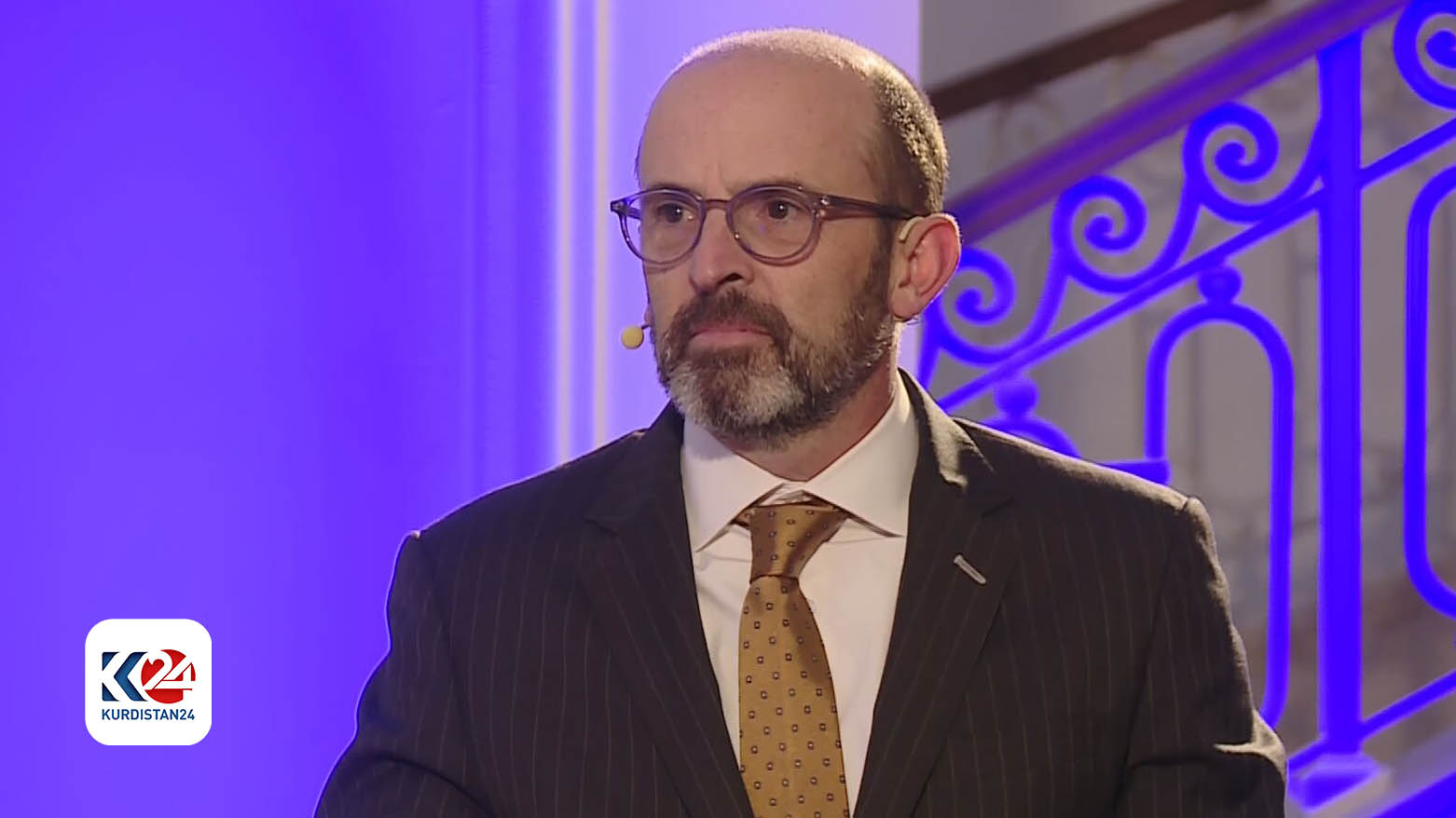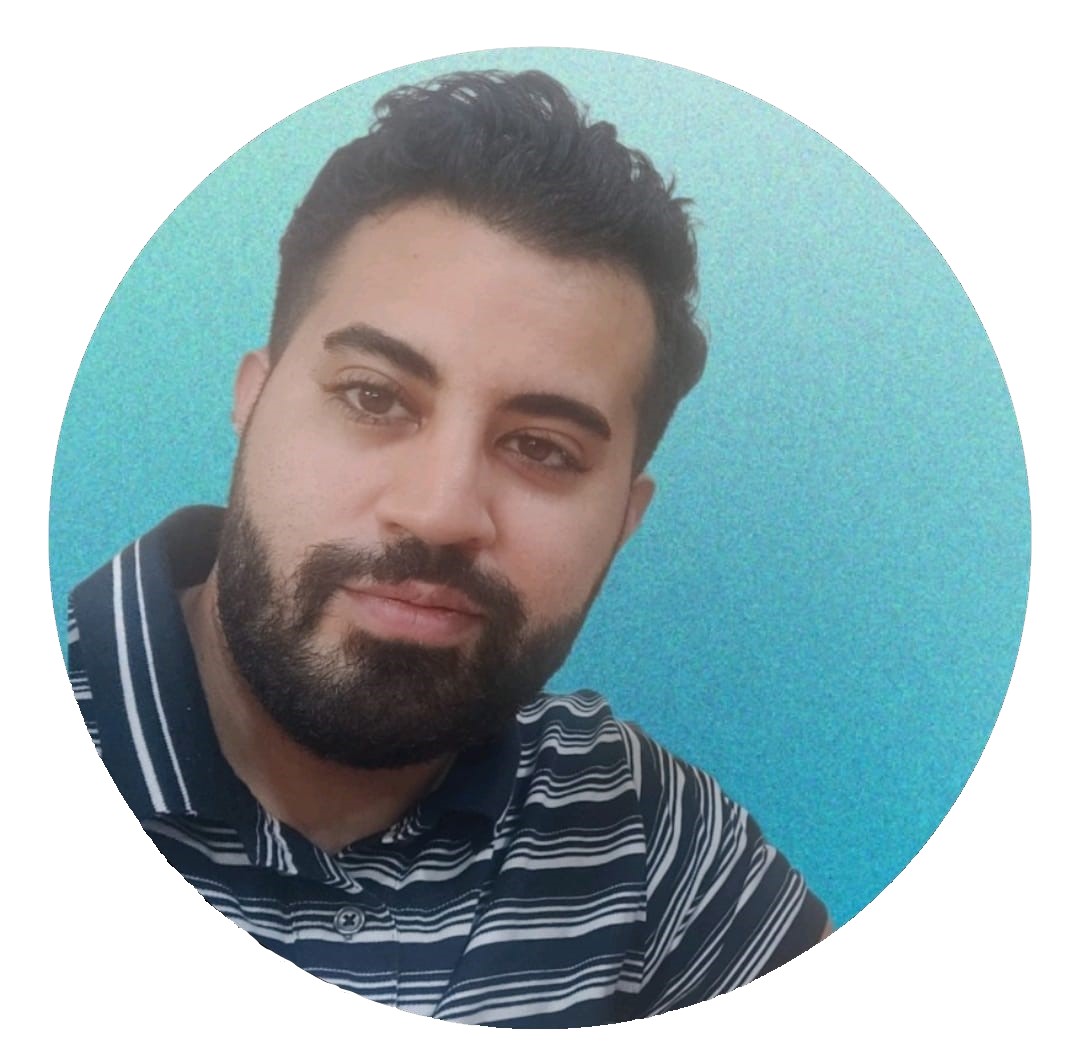Kurdistan 24 holds exclusive interview with Dr. Matthew Zais at MEPS 2023

ERBIL (Kurdistan 24) - HKN Energy Ltd's Vice President of Government Affairs, Dr. Matthew Zais, held an exclusive interview with Kurdistan 24 at the Middle East Peace and Security (MEPS) Forum in Duhok, where he discussed the anticipated resumption of Kurdish oil exports, in addition to the economic and security ramifications of the Israel-Hamas conflict.
Dr. Zais noted that “Oil exports can resume as soon as possible, but it has been a long time since March when oil exports were stopped and we as one of the many oil companies, along with APIKUR (Association of the Petroleum Industry of Kurdistan) in the Kurdistan Region have noted [...] that we are ready to resume exports immediately.”
Held at the American University of Kurdistan in Duhok, the MEPS Forum provides a platform for actionable policy recommendations, rigorous debate and critical thinking, in addition to developing a space for inclusive dialogue between regional and international stakeholders.
More on oil and gas, Dr. Zais further continued “It is not a commercial problem – it is a political problem – and we are hopeful that continued discussions between the Kurdistan Region, Baghdad, and the oil companies can come up with a solution sooner than later."
The interview comes at a time when the Kurdistan Region is suffering from the staggering repercussions of a nearly nine-month halt to its oil exports after an international Paris-based court ruled that Kurdish oil exports were illegal without the control and oversight of the federal Iraqi Government.
“That's also why the Kurdistan Region is so critically important. It produces half a percent or 500,000 barrels of oil that is not on the market today, Dr. Zais added, while noting "And it also is an alternative export route to the Strait of Hormuz, which could be closed off if tensions were to increase, so the world and the region need the [Ceyhan] pipeline open because it's an alternative export route.”
“The world has experienced rising oil prices almost reaching $100 and the US and others have gone to the places where they think that they can get oil from to include not enforcing sanctions on Iran, to lifting sanctions on places like Venezuela, and hopefully that attention can turn to Kurdistan which is an American ally, [...] to help restore its economic viability.”
It is believed that the stoppage of oil exports has resulted in a loss totaling more than $7 billion, according to a recent APIKUR statement.
Pressed on the regional ramifications of the Israel-Hamas conflict, Dr. Zais responded “I think Iran has decided that it is willing to sacrifice Hamas and Gaza for their goals at the expense [of not] jeopardizing Iranian position in Lebanon, Iraq and Syria.”
When asked about the potential for a proxy conflict in Iraq between the US and Iran, he replied “I think there is always a risk of conflict in Iraq when you have such a large military force, much of which answers to the IRGC (Islamic Revolutionary Guard Corps), that is always going to be a potential for conflict.”
Dr. Zais’ remark comes as an alliance of Shiite paramilitary forces branding itself as the Islamic Resistance in Iraq (IRI) has claimed responsibility for a spate of drone and missile strikes on US and Coalition installations in Iraq and Syria since the outbreak of the Israel-Hamas conflict in early October. While the exact figure is disputed, it is believed there have been more than 55 such attacks on American installations in the region since the Gaza conflict began, according to a Pentagon briefing on Nov. 16.
Locally, the Kurdistan Region’s capital has been a focal point of the IRI's onslaught, as it has been bombarded by several drone and missile strikes since the Gaza conflict began, recently at Al-Harir Air Base.
Founded in 2007 by the late business mogul Ross Perot, HKN Energy Ltd is an oil investment firm with two plants covering an area of 420 square kilometers in the Sarsang Block in the Zagros Mountains of the Kurdistan Region.
In addition to his role at HKN Energy, Dr. Zais holds the title of Senior Fellow at the Atlantic Council’s Scowcroft Middle East Security Initiative. Founded in 1961, the Atlantic Council is a lobbyist-funded, American think tank. Through its research, it strives to shape “policy choices and strategies.” In addition to pursuing bipartisan US congressional relations, the Council’s goal is to provide a platform for its values of diversity, equity, and inclusion.
Dr. Zais is also a professor at the Walsh School of Foreign Service of Georgetown University. He holds a B.S. in Economics from the United States Military Academy at West Point and an MPA and Ph.D. in Security Studies from Princeton University.
He previously served in various US government roles, including as White House director for Iraqi and Kurdish Affairs on the National Security Council, in addition to a role as the deputy secretary for the US Department of Energy.
